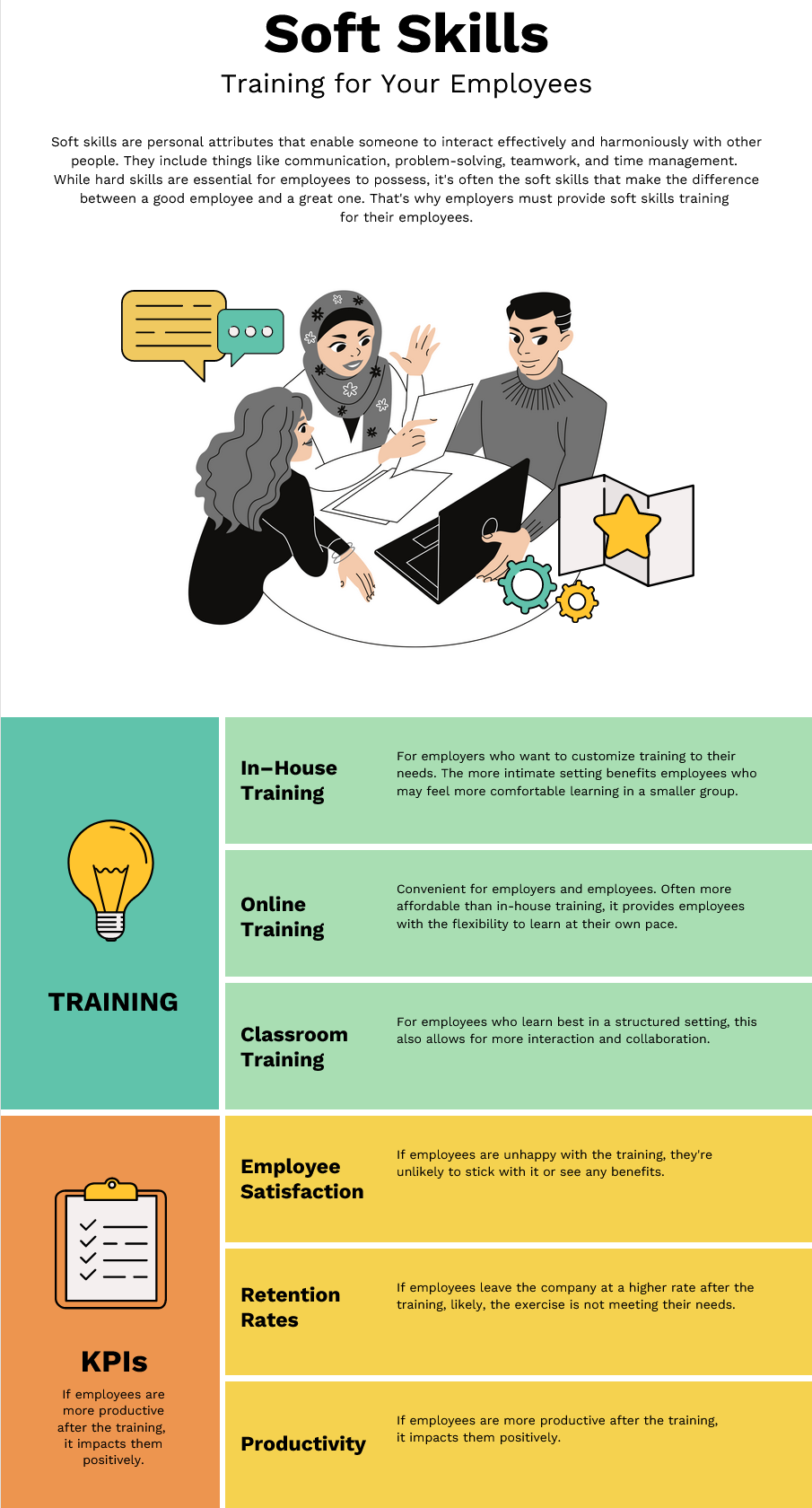Essential Soft Skills (11)
Introduction
Workplaces require more than just technical expertise and knowledge as workers need to work, ie collaborate, with others to be successful.
Soft skills are also known as people skills or interpersonal skills; they
"...a set of personal attributes and abilities that allow individuals to effectively interact with others in a professional setting......soft skills are difficult to measure or quantify; however, they are essential for success in a wide range of industries and professions......the ability to navigate complex interpersonal dynamics and build strong relationships is the key to success..."
Monique Danao, 2023
Soft skills (11)
1. Communications (effective communications is the basis of building strong relationships; it is more than conveying messages in a clear and compelling way, it is the ability to understand the needs of others and respond to feedback; some communication skills include
- active listening
- verbal communications
- non-verbal communications
- written communications
- presentation skills)
2. Leadership (good leaders
"...are able to set a clear vision, communicate effectively and create a culture of accountability and excellence. More importantly, they're able to inspire and influence team members to achieve shared goals and objectives..."
Monique Danao, 2023
Some examples of leadership skills:
- problem-solving
- coaching and mentoring
- management
- strategic thinking)
3. Teamwork (this involves the ability to work with others towards a shared goal, ie collaboration; some examples of teamwork skills:
- conflict resolution
- mediation
- accountability
- collaboration)
4. Creativity (involves the ability to think differently and to come up with alternatives;
"...requires a mindset of curiosity, risk-taking and a willingness to embrace ambiguity and uncertainty..."
Monique Danao, 2023
Some examples of creative strategies:
- brainstorming
- imagination
- curiosity
- experimentation)
5. Time management (this involves an
"...Ability to set priorities, organise starts and allocate time across different activities. It requires discipline and a willingness to avoid distractions and low-priority tasks......those who can manage their time effectively are more likely to be seen as reliable and efficient..."
Monique Danao, 2023
Some examples of time management strategies:
- planning
- goal-setting
- delegation
- time blocking)
6. Adaptability (this involves being able to adjust to changing circumstances, like learning new skills and technologies;
some examples of adaptability characteristics:
- flexibility
- resilience
- growth mindset
- analysis)
7. Problem-solving (is needed
"...for identifying and addressing complex challenges and opportunities in a variety of contexts.....ability to come up with alternative solutions..."
Monique Danao, 2023
Some examples of problem-solving skills
- critical thinking
- analysis
- strategic thinking
- initiative)
8. Work ethic (involves commitment to the job; being positive; some characteristics of a person with a good work ethic:
- punctuality
- reliability
- professionalism
- discipline)
9. Critical thinking (using a strategic and analytical mindset to approach problems and challenges
"...a critical thinker can evaluate the strength of arguments and identify flaws in reasoning. They consider multiple perspectives, which makes them more likely to pinpoint the short-term and long-term consequences of their decisions. Additionally, they can also identify the root cause of a problem and generate multiple solutions..."
Monique Danao, 2023
Some examples of critical thinking skills:
- analysis
- evaluation
- deductive reasoning
- synthesis)
10. Conflict management (involves a process for addressing disputes or disagreements in a constructive and effective manner, ie identify common goals and interests of all parties involved; be open to different ideas and perspectives to create motivation towards a resolution; some examples of conflict management skills:
- empathy
- negotiations
- mediation
- conflict resolution)
11. Emotional intelligence (this involves
"...The ability to recognise and understand one's own emotions and those of others..... Allows them to provide constructive feedback in a way that is sensitive to the emotions of others, leading to more successful outcomes and stronger relationships......the ability to motivate others and navigate challenging situations with grace and empathy..."
Monique Danao, 2023
Some examples of emotional intelligence skills:
- self-awareness
- empathy
- social skills
- motivation)
Summary
A balance of technical expertise and soft skills is required in the collaborative workplace; soft skills can be developed and include communication, teamwork, creativity, adaptability, problem-solving, work ethic, critical thinking, conflict management, emotional intelligence, leadership, time management, etc.
Training of Soft Skills

(source: https://infograph.venngage.com)
